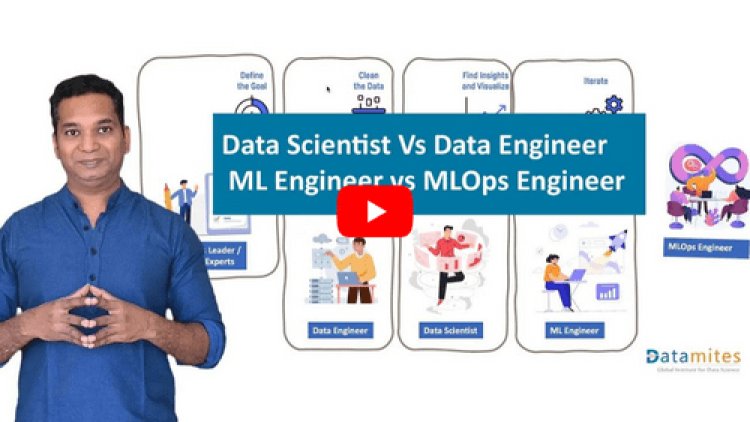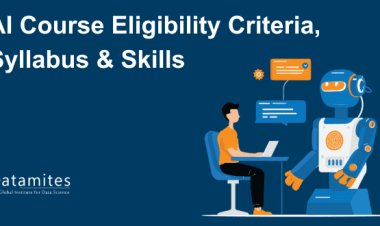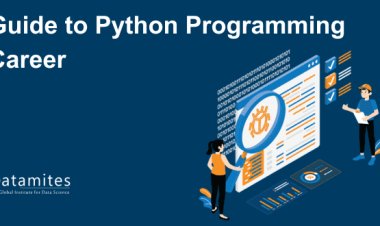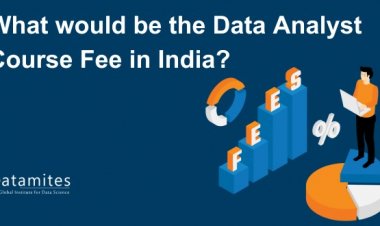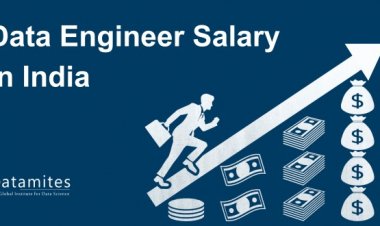How to Become A Data Scientist – Best Certification Courses in India
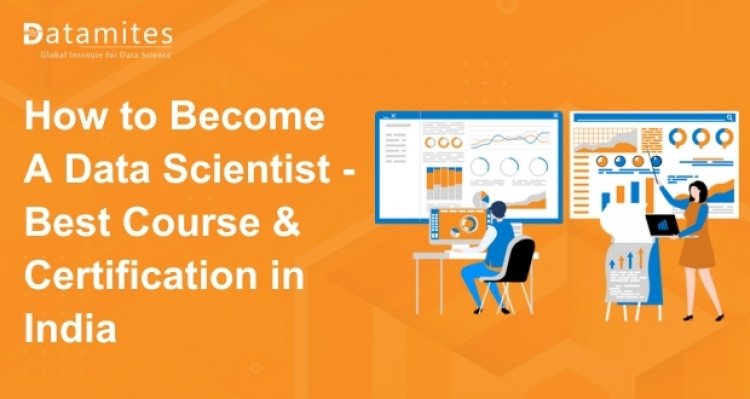
India has emerged as a fertile ground for data science professionals. The burgeoning demand for data scientists is a direct response to the flood of data generated by a rapidly digitizing economy. This profession goes beyond mere number crunching; it’s about interpreting complex data to inform strategy and innovation.
The pulse of the market is clear, with a staggering 82,000+ data science job openings in India, as noted on LinkedIn. With the significance of data-driven decision-making scaling new heights, a career in data science offers a blend of challenge, opportunity, and excitement.
Understanding the Data Science Landscape in India
India’s economy is on the fast track, with tech-savvy businesses popping up everywhere. It’s no secret that data science is a hot field right now. By 2026, there’s expected to be a 28% jump in the demand for data scientists globally, which is a pretty big deal (Source: U.S. Bureau of Labor Statistics).
This spike isn’t just about tech companies; it’s about all kinds of workplaces. Whether it’s a bank figuring out the risk of loans, a hospital trying to improve patient care, or an online store wanting to sell more, they all need data scientists. And the best part? The salaries are as good as they sound, often quite a bit more than the average paycheck. The average Data Scientist’s Salary in India is INR ₹11,00,000 per year, Glassdoor states.
Also check out the average Data Scientist Salaries Across Key Indian Cities:
- Bangalore: As the tech epicenter of India, data scientists in Bangalore earn an average annual salary of approximately INR 15,00,000.
- Mumbai: In India’s financial nucleus, data science experts receive an average yearly compensation of INR 11,33,147.
- Hyderabad: Known for its vibrant IT scene, Hyderabad presents an average data scientist salary of about INR 12,00,000 per year.
- Chennai: In this rapidly growing IT hub, the typical yearly income for data scientists is around INR 11,53,869.
- Kolkata: In this metropolitan hub, data scientists can expect an average salary of INR 9,77,424 per year.
- Pune: A city with a burgeoning tech sector, Pune offers data scientists an average annual salary of INR 9,66,915.
- Ahmedabad: In this evolving tech market, the average annual salary for data scientists stands at INR 7,93,955.
- Kochi: An emerging tech city, Kochi sees data scientists earning around INR 8,63,745 annually.
- Delhi: The capital city of India offers an average data scientist salary of INR 13,50,000 per annum.
But it’s not just about the money. Being a data scientist means you’re always on the cutting edge, learning new things, and staying sharp with the latest tech trends. The data scientists future looks bright, with plenty of opportunities to grow and make a real difference in the world of business.
Refer these articles:
- Difference Between Data Scientist and Data Engineer
- Difference Between Data Science and Data Analytics
- Why Python is Important for Data Science Course
Learning Path to Becoming a Data Scientist in India
The future for data scientists in India looks promising. As data continues to proliferate, the demand for skilled professionals will only intensify. Career growth prospects are excellent, with opportunities to climb the corporate ladder and even transition into leadership roles.
Becoming a data scientist can be an enriching journey, typically taking anywhere from 8 months to a year or more, depending on your background, learning pace, and dedication. Here’s a structured roadmap to guide you through this process:
- Educational Foundations
- Enroll in foundational courses in data science on platforms like DataMites, that offer data science training.
- Focus on understanding the basics of computer science, mathematics, and statistics.
- Complete introductory courses in data science and analytics.
- Technical Skills Development:
- Mastery in programming is a must, with Python and R being the most popular languages in the data science community.
- Equally important is proficiency in SQL for database management, and a solid understanding of machine learning algorithms.
- Tools like Pandas and NumPy for data processing, and data visualization tools such as Matplotlib, Seaborn, and Tableau are critical in your toolkit.
- Familiarity with big data technologies like Hadoop and Spark and cloud platforms like AWS, Azure, or Google Cloud can be a significant advantage.
- Practical Experience and Projects:
- Gaining hands-on experience is a pivotal step for anyone aiming to become a data scientist.
- Aspiring professionals in this field should proactively engage in real-world projects. Activities such as participating in hackathons, solving problems on platforms like Kaggle, and contributing to open-source projects offer invaluable opportunities.
- These experiences not only allow for the practical application of learned theoretical concepts but also significantly enhance a candidate’s skills and marketability in the data science job market.
- Internships and Entry-Level Positions:
- Aiming industry experience through data science internships in India or entry-level positions in data analytics is crucial.
- Such roles offer a glimpse into the practical applications of data science and help build a strong foundation for a future career data science. These experiences can be pivotal in understanding how data-driven decisions are made in real-world business contexts.
- Networking and Industry Engagement:
- Building a professional network is integral to career growth. Attending industry conferences, seminars, and webinars, and actively engaging in professional groups on platforms like LinkedIn can lead to valuable connections.
- Networking not only provides insights into industry trends but can also open up opportunities for collaborations and career advancement.
- Certifications and Advanced Learning:
- Enhancing your qualifications with data science certifications in India can give you an edge in the job market. Globally recognized certifications from bodies like IABAC add significant value to your professional profile.
- These programs not only deepen your expertise but also provide recognition of your skills in the global arena.
Step By Step Learning Process for Data Science
Getting started on a journey to become a data scientist involves a structured and disciplined approach to learning. Over six months, you will progressively build a robust foundation in mathematics, statistics, programming, machine learning, and specialization areas while continuously engaging with the data science community and staying abreast of the latest trends.
Months 1-2: Foundations in Mathematics and Statistics
- Establish a solid foundation in mathematical concepts, including linear algebra and calculus.
- Develop a strong understanding of statistical principles and probability theory, essential for robust data analysis.
Month 3: Programming Proficiency
- Master a programming language commonly used in data science, such as Python or R.
- Explore key libraries like Pandas for data manipulation and Matplotlib/Seaborn for data visualization.
Months 4-5: Dive into Machine Learning
- Explore a variety of machine learning algorithms, starting with both supervised and unsupervised learning.
- Gain hands-on experience by implementing machine learning models using popular libraries like scikit-learn and TensorFlow.
- Practice data analysis and visualization with real-world datasets to enhance practical skills.
Month 6: Specialization and Portfolio Building
- Choose a specific area of focus within data science, such as natural language processing, computer vision, or reinforcement learning.
- Undertake projects that showcase your skills and application of data science concepts.
- Develop a professional portfolio featuring your projects, code, and detailed explanations to demonstrate your capabilities to potential employers.
Continuous Activities Throughout the 6 Months: Networking and Lifelong Learning
- Engage with the data science community through online forums, social media, and local meetups to build connections.
- Stay updated on industry trends and emerging technologies to remain relevant.
- Embrace a mindset of continuous learning, tackling new challenges and projects to refine and expand your skill set.
As we continue this exploration of data science careers, the next section will delve into the best data science courses in India and best data science certifications in India to help you embark on or advance your career in this dynamic and rewarding field. Stay tuned for insights on how to build a solid foundation and excel as a data scientist in the Indian job market.
Popular Data Science Certification Courses in India
When considering a career in data science in India, the importance of a strong educational foundation cannot be overstated. Prospective data scientists should weigh options based on how well-respected the data science courses in India is in the industry, the depth and relevance of the curriculum, the opportunity for hands-on experience, and positive feedback from students.
- IIM Calcutta – Advanced Program in Data Science:
- Industry Recognition and Relevance: IIM Calcutta carries a legacy of excellence, and its data science program is no exception, enjoying high regard within the industry.
- Curriculum Quality and Rigor: The course offers a robust curriculum that balances theoretical depth with contemporary relevance, addressing the latest in data science methodologies.
- Interactive Hands-on Learning: Emphasis on case studies and projects ensures students can apply concepts in real-world scenarios, making learning concrete and applicable.
- Student Experience: Feedback from alumni frequently highlights the quality of faculty and the network opportunities as standout features.
- IIT Madras – BSc Degree in Data Science and Applications:
- Industry Recognition and Relevance: IIT Madras’s reputation for technical excellence extends to its BSc degree in Data Science, aligning with industry needs and standards.
- Curriculum Quality and Rigor: With a strong foundation in data science principles, the curriculum is regularly updated to reflect the evolving landscape of data analytics.
- Interactive Hands-on Learning: The program integrates practical sessions and labs, fostering an environment where students can experiment and learn from direct experience.
- Student Experience: The course structure allows flexibility and accessibility, often receiving positive feedback for its inclusivity and reach.
- IABAC – Certified Data Scientist:
- Industry Recognition and Relevance: IABAC’s Certified Data Scientist certification is globally recognized, designed to meet international industry benchmarks for data science.
- Curriculum Quality and Rigor: The data science certification in India follows a stringent curriculum that aligns with current industry requirements, ensuring learners are up-to-date with modern practices.
- Interactive Hands-on Learning: The program includes practical exercises reflecting real industry problems to help students gain hands-on expertise.
- Student Experience: Candidates value this certification for its detailed content and the credibility it adds to their professional profile.
- Jain University – Master of Science in Data Science:
- Industry Recognition and Relevance: As an institution that has established a solid academic presence, Jain University’s program is tailored to meet the dynamic needs of the industry.
- Curriculum Quality and Rigor: The MSc program is comprehensive, offering advanced insights into data science with a commitment to academic excellence.
- Interactive Hands-on Learning: Projects and practical modules enable students to bridge the gap between theoretical knowledge and industry application.
- Student Experience: Students often commend the course for its diverse learning environment and supportive faculty.
- NASSCOM FutureSkills:
- Industry Recognition and Relevance: NASSCOM FutureSkills certifications are recognized across India’s IT industry, backed by the authority of a premier trade body.
- Curriculum Quality and Rigor: NASSCOM FutureSkills offers specialized courses that adhere to high standards of curriculum development.
- Interactive Hands-on Learning: Many of their programs are developed in collaboration with industry leaders, ensuring practical relevance and interactive learning.
- Student Experience: The variety of courses allows learners to tailor their education to specific interests and career goals, leading to positive experiences.
- IBM – Data Science Professional Certificate:
- Industry Recognition: IBM is a global leader in the technology space, lending significant prestige to its certifications.
- Curriculum Quality and Rigor: The program is skill-focused, offering deep dives into practical tools and methodologies.
- Interactive Hands-on Learning: The certificate includes hands-on projects and labs to simulate real-world data analytics scenarios.
- Student Experience: Learners appreciate the certificate for its flexible learning paths and industry-relevant content.
Conclusion
To become a data scientist in India, you’ll need to get the right skills, perhaps through a degree or certification. Look for programs like those offered by DataMites Institute, which are accredited by reputable bodies like IABAC and NASSCOM FutureSkills. Remember, becoming a data scientist is about more than just studying; it’s a path of constant learning and staying up to date with the latest trends. If you love data and solving problems, this could be the perfect career for you.
Certified Data Scientist (CDS) Program
Data Scientist vs Data Engineer vs ML Engineer vs MLOps Engineer

 Datamites Team
Datamites Team 
